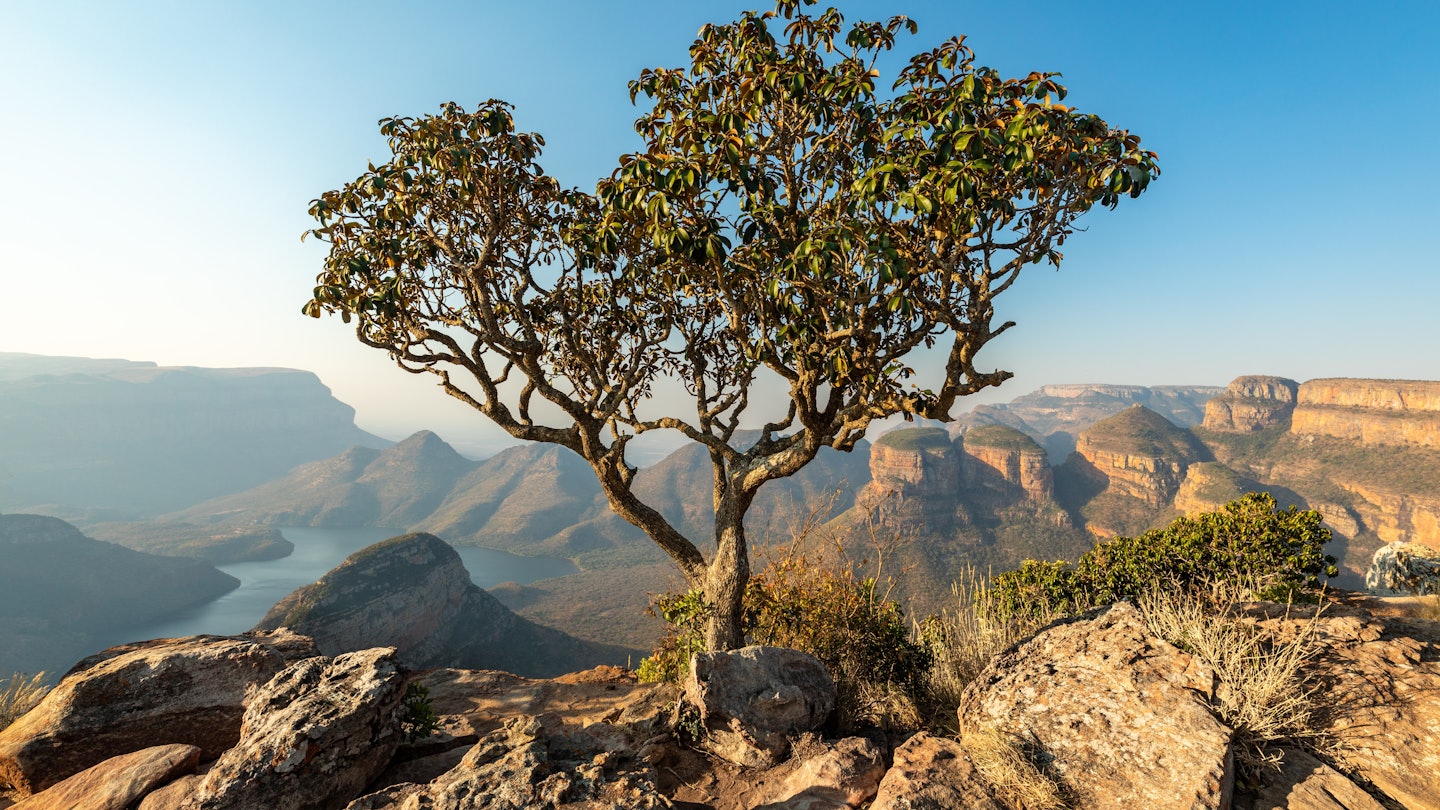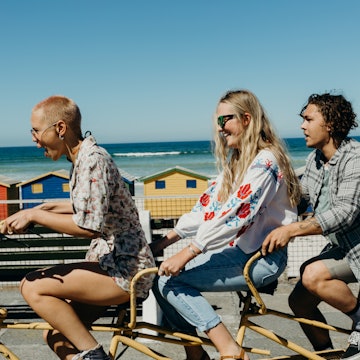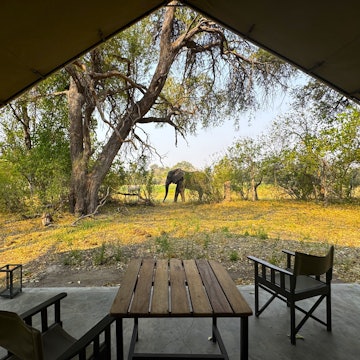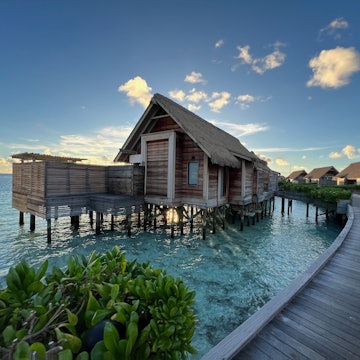
10 tips for visiting South Africa on a budget



Blyde River Canyon. Gunter Nuyts/Shutterstock
South Africa has long had a reputation for being affordable – its dramatic coastline, don't-miss national parks, vibrant cultures and cosmopolitan cities within reach for all budgets. Accommodations and food and drinks are a particularly good value, especially in the upper ranges of the market, with prices at luxury hotels and restaurants considerably lower than at their European and North American counterparts. At the budget end of the spectrum, expect good quality and standards at very reasonable prices.
Your most significant outlay is likely for organized safaris and guided tours. But even here, with a bit of planning, it’s possible to keep costs manageable and still experience the best activities in South Africa. Estimate your spending with this guide to daily costs in South Africa, along with top tips to help you save.

Daily costs in South Africa
Bed in a hostel dorm room per night: from R350 (US$20)
Basic hotel room for two per night: from R600 (US$34)
Self-catering apartment per night: from R550 (US$31)
One-way bus ticket from Johannesburg to Cape Town: from R650 (US$36)
One-way flight from Johannesburg to Cape Town: from R1200 (US$67)
Coffee: R35 (US$2)
Bunny chow (sandwich): R70 (US$4)
Dinner for two, excluding drinks: from R450 (US$25)
Bottle of South African wine: from R90 (US$4.50)
Adult entry fee for Kruger National Park: R535 (US$30)
Adult entry fee for Mountain Zebra National Park: R293 (US$17)
Beer at a bar: R30–60 (US$1.50–3.50)
Average daily cost for three meals a day plus budget accommodations and activities: from R800 (US$45)

Visit during the shoulder seasons
Throughout South Africa, prices are highest during the December to January summer holiday period, and accommodations – including those within national parks – are often booked well in advance. February to May and September to November tend to be good months to visit most provinces, with fine weather, lower prices and many areas to yourself. Exceptions are around Easter and big-ticket events like Cape Town’s Two Oceans Marathon in April. In spring, treat yourself to the profusion of blooming jacaranda trees in Pretoria in October, and an abundance of blue skies and sunshine almost everywhere, while still paying off-season rates.
Johannesburg is the cheapest gateway airport for regional flights
Johannesburg is an ideal port of entry if you’re planning to visit Kruger National Park or the Drakensberg area (both an easy half-day’s drive), or if you'll be combining your South Africa trip with stops in Lesotho, eSwatini (formerly Swaziland), Botswana or other neighboring countries. For international flights, Cape Town is catching up with Johannesburg, and fares are roughly comparable between the two hubs, so choose your arrival point based on geography and where you want to focus your explorations.

Rent a car to explore the country
Driving yourself is the best budget option for getting around South Africa, especially if you’re traveling with kids or in a small group. International and local rental agencies have branches at major South African hubs, and many offer unlimited distances at reasonable rates – essential for keeping down costs while covering the country's length.
Solo travelers or those who don’t want to rent a vehicle should check out private shuttle services. One popular company is BazBus, which connects Cape Town with both Johannesburg and Port Elizabeth via the scenic Garden Route, with direct and hop-on-hop-off tickets. Buses are another possibility but better suited for point-to-point transfers between major towns.
Use ridesharing apps to get around urban areas
Uber is generally regarded as safe and is less expensive than taxis. It’s also a good choice for affordable transport between the airport and your hotel – look for the signposted ridesharing pickup zones.

Plan a do-it-yourself park visit
South Africa presents some of the best value in southern Africa for wildlife watching, and all of the major parks are geared toward independent travelers. Road trip itineraries are easy to craft, and on days when you want a guide, one can easily be arranged at park reception areas. You can also save by camping or staying in park-run accommodations (all of the parks offer low-season discounts) and by self-catering.
If you’re traveling as a family or spending more than a week inside the major parks, consider purchasing a Wild Card. To trim costs even more, remember that smaller and lesser-known parks often have lower entry fees than their more famous counterparts.
Barbecue, buy local produce and bring a refillable bottle
A braai (barbecue) is a great South African tradition – one that spans cultures, provincial borders and all walks of life. It’s rare to find a guesthouse, apartment or homestay that doesn’t have a braai pit in the backyard.
You could also picnic South African-style by stocking up on provisions in the nearest town, filling a cooler (available cheaply at supermarkets) and heading out for a self-catered holiday along the coast or at the national parks. As you go, seek out South Africa’s abundance of locally made products, especially cheeses and wine, which are often available at great prices.
Tap water is generally safe to drink, and carrying a refillable flask will help you save while avoiding contributing to the plastic bottle problem. If you don’t want to cook for yourself, watch where locals go to get the best deals. Sidewalk food vendors are good, when you can find them, as are small restaurants selling traditional food. Ask the staff at your accommodation about their favorite places to eat

Enjoy South Africa’s most affordable sights
Small towns and offbeat destinations will be lower priced than cities and tourism hot spots, but it’s possible to save even in major hubs. In Cape Town, Table Mountain can be visited less expensively if you hike rather than take the cable car. You can then relax afterward with a swim at the Camp’s Bay tidal pool, or do some seal spotting from the Sea Point Promenade. In Durban, stroll along the boardwalk. Johannesburg's many free museums cover nearly all interests, but be sure to finish at the Apartheid Museum, with its reasonable R170 (US$10) entry fee.
Stay at hostels or backpacker accommodations
Take advantage of cheap dorm beds, kitchens for self-catering and bulletin boards with posts from those looking to find a group or excursions. Almost all hostels and hotels have discounts for children under 12, and many hostels and backpacker establishments are well suited for families too, with private rooms in addition to dorm beds. Private rentals, such as those arranged through LekkeSlaap, Airbnb or similar services, can also bring significant savings, especially for longer stays.

But splurge if you can swing it
While upmarket hotels can cost upward of R3000 (US$168) per night, rates are generally well below those at equivalent establishments elsewhere in the world. You'll experience similar levels of service, often complemented by unbeatable views over the ocean or mountains. Once you’ve taken in the views, make time to enjoy South Africa's world-class cuisine. The Cape Winelands and Johannesburg are known for excellent dining options. Throughout the country, main dishes generally don’t exceed R200 (US$11), while a multicourse menu at an elite restaurant might run to about R1500 (US$84).
Claim back tax when you leave
Save your receipts for souvenirs and other items to claim back South Africa’s 15% Value Added Tax when leaving the country. Get the details from the VAT Refund Agency.















